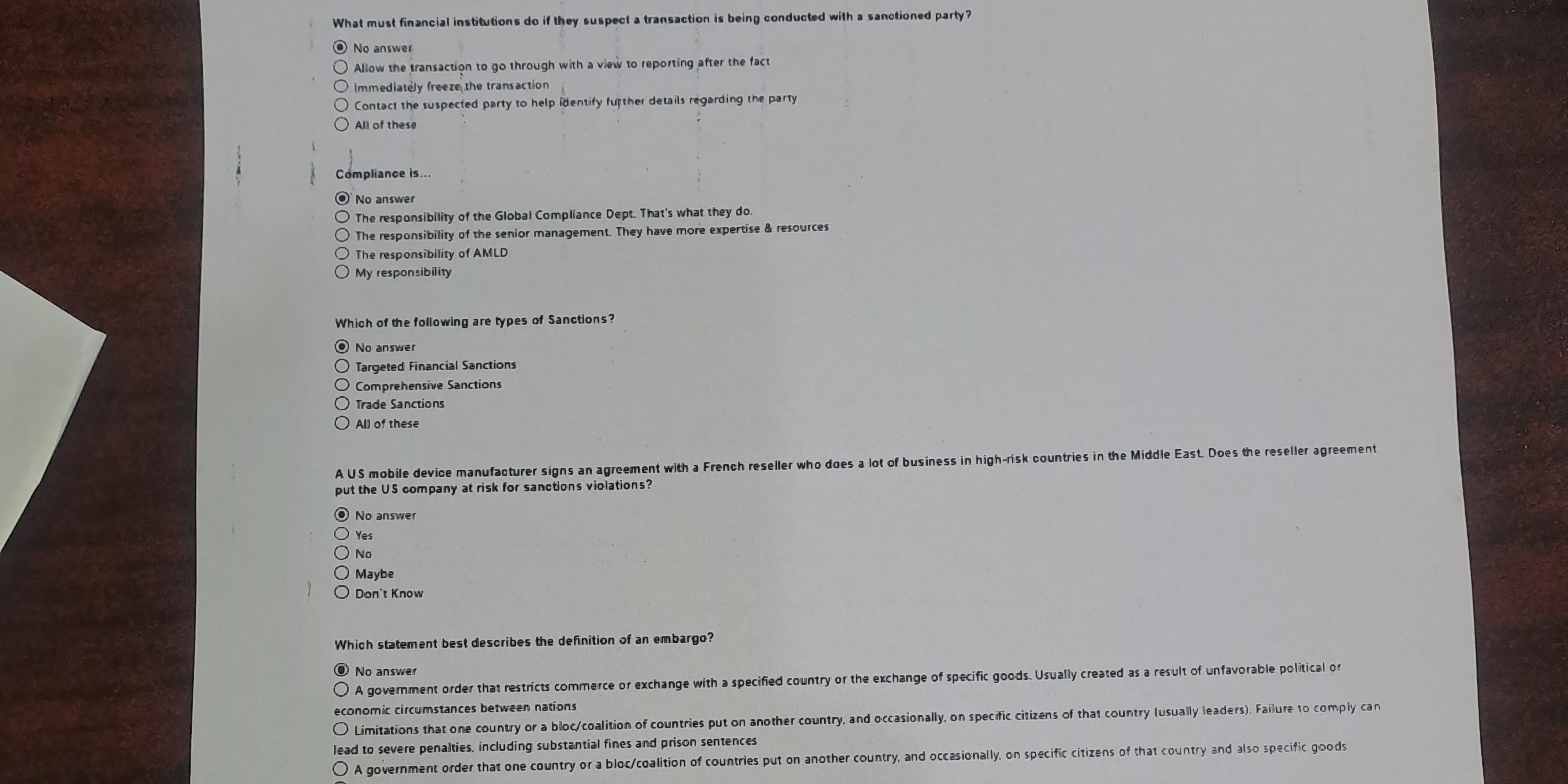What must financial institutions do if they suspect a transaction is being conducted with a sanctioned party? Compliance is...? Which of the following are types of Sanctions? A US... What must financial institutions do if they suspect a transaction is being conducted with a sanctioned party? Compliance is...? Which of the following are types of Sanctions? A US mobile device manufacturer signs an agreement with a French reseller who does a lot of business in high-risk countries in the Middle East. Does the reseller agreement put the US company at risk for sanctions violations? Which statement best describes the definition of an embargo?

Understand the Problem
The questions are related to financial institutions' responsibilities in case of suspected transactions with sanctioned parties, types of sanctions, and the definition of an embargo. They aim to assess knowledge of compliance regulations in financial contexts.
Answer
Freeze transaction, compliance is Global Compliance Dept., types include all sanctions, reseller risk is yes, embargo is a trade restriction.
Financial institutions should immediately freeze the transaction if they suspect it's conducted with a sanctioned party. Compliance responsibility often lies with the Global Compliance Dept. Types of sanctions include targeted, comprehensive, and trade sanctions. A reseller agreement may put a US company at risk for sanctions violations. An embargo is a government order restricting trade with a specified country.
Answer for screen readers
Financial institutions should immediately freeze the transaction if they suspect it's conducted with a sanctioned party. Compliance responsibility often lies with the Global Compliance Dept. Types of sanctions include targeted, comprehensive, and trade sanctions. A reseller agreement may put a US company at risk for sanctions violations. An embargo is a government order restricting trade with a specified country.
More Information
Sanctions are an important tool in international relations, aiming to influence behavior and policies of foreign countries or entities. Companies must screen for sanctions to avoid legal risk.
Tips
A common mistake is not understanding that sanctions compliance involves strict regulations that companies must adhere to, especially in international dealings.
AI-generated content may contain errors. Please verify critical information